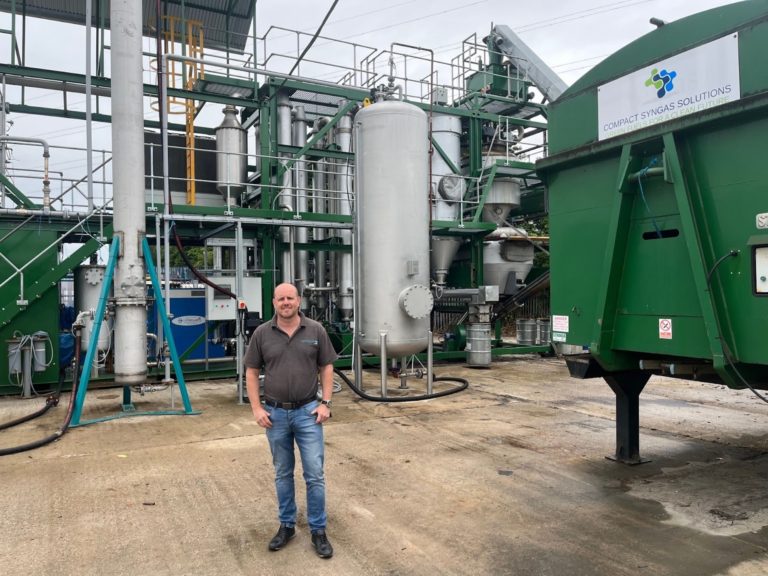
What a waste
The wasted potential hydrogen would be enough to drive nearly three million miles the equivalent of driving from London to Glasgow 14,292 times.
Some 42 million tonnes of waste are sent to landfill every year, where it decomposes and emits harmful gases including carbon dioxide and methane into the atmosphere.
About 11% of this waste is estimated to be biomass suitable for hydrogen production, and at least another 8% could be converted into Solid-Recovered Fuel (SRF). This means more than four million tonnes of biomass and three million tonnes of SRF is being wasted.
Government funding
Deeside-based CSS, recently secured almost £4 million in government funding to make its biomass and waste-to-hydrogen plants even greener by using carbon capture.
CSS has developed an advanced gasification process that generates hydrogen gas from waste products, including biomass like waste wood and other selected non-recyclable materials.
The company plans to build more than 50 hydrogen modules at around 15 sites, ranging from a single module to six per site offering the flexibility to suit local demand. These 50 modules will annually produce 11,000 tonnes of hydrogen and capture 29,000 tonnes of carbon dioxide.
The technology will be key to helping the UK reach its net zero 2050 target. The production of low carbon hydrogen from waste materials stops it reaching landfill and creates a fuel that has very low greenhouse gas by-products.
Paul Willacy, CCS’ managing director, said: “Hydrogen is an emission-free fuel that could be the future of eco-friendly transport, but the UK is throwing away more than 92 million tonnes of it a year.
“Sending waste wood to landfill means we’re missing out on harvesting eco-friendly fuel, and to add insult to injury, that material will release carbon dioxide and methane as it rots.
“The time has come for the UK to start capturing this hydrogen and support the drive to net zero.”
